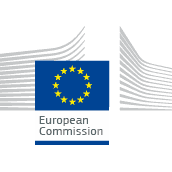
Call for proposals on prevention of NCDs - cardiovascular diseases, diabetes and other NCDs
Date de clôture : 21 févr. 2023
APPEL À PROJET CLÔTURÉ
APPEL À PROJET CLÔTURÉ
Soins de santé
Développement durable
Éducation et formation
Santé mentale
POLICY CONTEXT
NCDs are responsible for 87% of the disease burden in the Member States and improved health promotion and disease prevention can reduce the prevalence of NCDs by as much as 70%. The costs of treating NCDs are high and expected to grow further, also considering the Union’s aging population. COVID-19 has shown that NCDs can dramatically increase the negative impact of other diseases; the childhood obesity rate was included in the Commission’s strategic resilience dashboard; the economic case for prevention has been made by the OECD.
Cardiovascular diseases and diabetes are leading causes of death globally. While behavioural risk factors are key to preventing these diseases (and are addressed by other actions in this work programme), other complementary, specific and targeted public health measures can prove essential to reduce their associated burden. Among others, voluntary cooperation on hypertension, primary care or testing or screening may play a role in dealing with these challenges.
To support Member States in reaching the health targets of the United Nations 2030 Agenda for Sustainable Development and its goals, the Commission is working on a new initiative,‘Healthier Together – EU NCDs Initiative’, which includes five action strands for cardiovascular diseases, diabetes, chronic respiratory diseases, mental health and neurologicaldisorders, and a horizontal strand on health determinants. In each of these strands, the reduction of health inequalities will be tackled. In addition, the Commission has established SGPP to provide advice and expertise to the Commission and to foster exchanges of relevant experience, policies and practices between the Member States on how to tackle the burden of NCDs in the Union. The Commission will work with the Member States to define specific targets and actions for different areas of NCDs, such as cardiovascular diseases and diabetes. Stakeholders will also provide input via the Health Policy Platform, namely as regards their role in implementation.
To promote impact, national authorities will be supported to embed improvements in national policies. In parallel, NGOs as well as professional and patient groups will have the opportunity to engage in the implementation of complementary actions. Such engagement may include the provision of input for the preparation of public health guidelines, awareness actions, training, piloting or other actions that can benefit citizens directly.
This action supports the policy objective of reducing the burden of NCDs and implements the EU4Health Programme’s general objective of improving and fostering health in the Union(Article 3, point (a)) through the specific objectives defined in Article 4, points (a) and (i), of Regulation (EU) 2021/522.
Objective:OBJECTIVES, SCOPE AND ACTIVITIES
The aim of this action is to reduce the burden of NCDs and related risk factors, targeting:
a) cardiovascular diseases and diabetes, both at an individual and societal level, namely by supporting the NCDs policies and corresponding actions led by the Member States;
b) NCDs other than the five action strands of the initiative ‘Healthier Together – EUNCD Initiative’ and cancer; such as chronic kidney diseases and liver diseases, auto-immune diseases, musculo-skeletal conditions, etc.
This action will complement the Member States’ joint action on ‘Prevention of NCDs -Cardiovascular diseases and diabetes’ (DP-g-22-06.03) that aims to contribute to reducing the burden of NCDs, i.e. cardiovascular diseases and diabetes, and related risk factors, both at apersonal and societal level, including the health inequalities dimension.
The civil society organisations will implement targeted projects and activities, complementing the Member States’ efforts in the design, planning and implementation of best practices, including support to the definition of public health guidelines, to the preparation and roll out of new policy approaches, to the pilot test of innovative practices, and to support actions such as training and twinning, health communication or health literacy. Activities should also include an equity dimension and aim at reducing health inequalities.
Expected Impact:EXPECTED RESULTS AND IMPACT
The action will contribute to the implementation of projects on disease prevention and health promotion, which are expected to reduce the burden of NCDs, namely diabetes and cardiovascular diseases in Member States.
The expected results will include initiatives to complement the Member States’ efforts in the design, planning and implementation of best practices, such as support for the development of public health guidelines, support for the preparation and roll out of new policy approaches; participation in the pilot testing of innovative practices; development of support actions such as training and twinning, health communication or health literacy; and implementation of best practices in health promotion and disease prevention. The short-term impact will be an increased number of public health interventions being scaled up in all Member States and improvements in disease prevention and health promotion, and management policies relatedto NCDs.
Lien officiel : Disponible pour les utilisateurs enregistrés




S'il vous plaît Se connecter pour voir cette section